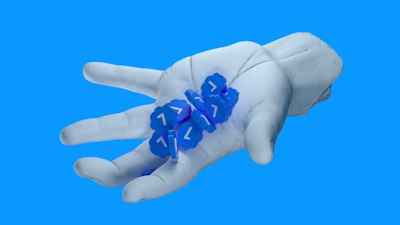10 Minute Mail
Terms and Conditions
By using 10 Minute Mail, you agree to the following terms and conditions. Please read them carefully before using our service.
- Acceptance of Terms:
a. By accessing or using our temporary email service, you acknowledge that you have read, understood, and agree to be bound by these terms and conditions, as well as our Privacy Policy.
- User Responsibilities:
a. Illegal Activities: Users of 10 Minute Mail are solely responsible for their actions and any content they transmit or receive through our service. All fraudulent and illegal activities conducted using our service are the responsibility of the user.
b. Compliance with Laws: Users must comply with all applicable local, national, and international laws and regulations while using our service.
c. Use for Intended Purposes: The main purpose of 10 Minute Mail is to protect your privacy, eliminate spam, and securely manage your personal data. Users are expected to use our service for these intended purposes only.
- Limitation of Liability:
a. 10 Minute Mail provides the temporary email service on an "as is" and "as available" basis. We do not make any warranties, express or implied, regarding the service, including its reliability, availability, or fitness for a particular purpose.
b. 10 Minute Mailshall not be liable for any direct, indirect, incidental, consequential, or special damages arising out of or in connection with the use or inability to use our service, even if advised of the possibility of such damages.
- Indemnification:
a. Users agree to indemnify and hold harmless10 Minute Mail and its employees, officers, directors, agents, and affiliates from any claims, damages, losses, liabilities, costs, or expenses (including attorneys' fees) arising out of or in connection with the user's violation of these terms and conditions or any applicable laws.
- Legal Processes:
a. Any legal processes, including subpoenas or court orders, that may arise from the use of10 Minute Mail are the sole responsibility of the user. We will cooperate fully with law enforcement authorities or authorized third parties in the investigation of any suspected illegal activities.
- Modification of Terms:
a. 10 Minute Mail reserves the right to modify or update these terms and conditions at any time without prior notice. Any changes will be posted on our website, and it is the user's responsibility to review the terms periodically. Continued use of our service after any modifications constitutes acceptance of the revised terms.
- Termination:
a.10 Minute Mail reserves the right to suspend or terminate a user's access to the service at any time for any reason, without prior notice or liability.
- Governing Law and Jurisdiction:
a. These terms and conditions shall be governed by and construed in accordance with the laws of REPUBLIC OF TURKEY. Any disputes arising out of or in connection with these terms shall be subject to the exclusive jurisdiction of the courts of REPUBLIC OF TURKEY.

form of communication in both personal and professional settings. With the prevalence of email, it's important to understand how your messages are being received and read. This blog post will explore the topic of email read receipts, covering everything from how to enable read receipts in your email client to interpreting read receipt notifications. We'll also discuss the best practices for requesting read receipts and the use of third-party email tracking tools. By the end, you'll have a comprehensive understanding of how to effectively utilize email read receipts in your communication strategy.<h2>Understanding Email Read Receipts</h2>
<p>Email read receipts are a feature that allows sen...

n important aspect of communication - emails. As a blogger, I understand the significance of crafting effective emails, and I am excited to share some tips on how to write a compelling introductory paragraph. Whether you are reaching out to a potential collaborator, responding to a reader, or simply networking, the introductory paragraph sets the tone for the rest of the email. In this post, I will cover the key elements to include in an introductory paragraph, such as addressing the recipient by name, expressing gratitude for their time, and setting the tone for the rest of the email. Let's delve into the art of writing impactful email intros!<h2>Address The Recipient By Name</h2>
<p>When i...

al part of communication, both in personal and professional settings. And with the volume of emails sent and received daily, it's crucial to make a lasting impression with each message. One way to do this is through a professional and effective email signature. In this blog post, we will delve into the importance of a professional email signature, the key elements to include, design tips for maximum impact, best practices for layout, and creative examples to inspire your own signature creation. Whether you're a business professional or a freelancer, your email signature can speak volumes about you and your brand.<h2>Importance Of A Professional Email Signature</h2>
<p>An email signature is ...

to be a crucial tool for businesses to connect with their audience. However, with the myriad of options available, choosing the right email marketing platform can be overwhelming. Once you have a platform in place, the next step is to focus on building an email list and segmenting it to target specific audiences. Crafting compelling email content, designing effective email templates, and personalizing messages are all essential elements of a successful email campaign. Additionally, scheduling the right time to send emails and testing and optimizing campaigns are key to reaching your audience effectively. It's also important to ensure email deliverability and avoid spam filters, and to analyz...

tool for businesses looking to connect with their audience. From understanding the purpose of your emails to measuring and improving engagement, there are various key elements to consider when crafting effective email campaigns. In this blog post, we will delve into the various aspects of successful email marketing, including crafting clear subject lines, structuring your content, using the right tone, and incorporating call to action. We'll also explore the importance of optimizing for mobile devices, personalizing your emails, and including relevant signatures to make a lasting impression. Additionally, we'll discuss the significance of proofreading for clarity and measuring the effective...

powerful tool for reaching and engaging with the target audience. However, with inboxes flooded with messages, it's essential to craft emails that stand out and resonate with recipients. From understanding the target audience to testing different email variations, there are several key strategies to consider when creating effective marketing emails. In this blog post, we'll explore the essential elements of successful email marketing, including crafting attention-grabbing subject lines, personalizing content, incorporating social proof, creating urgency, and optimizing for mobile devices. By following these strategies, you can maximize the impact of your email campaigns and drive action from...

is more important than ever for businesses and individuals alike. Whether it's through email, video conferencing, or instant messaging, the way we communicate can have a significant impact on our brand's credibility and marketing campaigns. By maintaining documented records of all correspondence, we can easily track and measure the effectiveness of our communication strategies. Additionally, these tools allow for seamless collaboration and sharing, ultimately serving as a cost-effective solution for businesses looking to streamline their communication processes. In this blog post, we will explore the various benefits of professional communication in today's fast-paced and competitive market...

feeling overwhelmed by the numerous options available? Look no further! In this blog post, we will carefully examine and compare some of the most popular email providers on the market today. We'll delve into the features and security measures offered by these providers, assess their user-friendly interface and customization options, explore their integration with other tools and services, and evaluate the customer support and reliability of each provider. By the end of this post, you will have all the information you need to make an informed decision about which email provider is right for you.<h2>Comparison Of Popular Email Providers</h2>
<p>When it comes to choosing an email provider, the...

a crucial role in both personal and professional interactions. Understanding the intricacies of email etiquette, such as knowing when to use the "Cc" and "Bcc" fields, can significantly impact the effectiveness of your communication. In this blog post, we'll delve into the purpose of Cc in emails, explore its advantages and limitations, and also shed light on the often overlooked role of Bcc in email communication. By the end of this post, you'll have a comprehensive understanding of when and how to use Cc and Bcc to your advantage.<h2>Understanding Cc And Bcc</h2>
<p>The use of email has become an integral part of our daily lives, both personally and professionally. When composing an email,...

account? Do you want to understand the benefits of an Edu mail and the significance of using 10 minute mail for verification? In this blog post, we will dive into the world of Notion accounts and explore the advantages of having an Edu mail. We will also discuss the importance of using 10 minute mail for verification purposes. Additionally, we will guide you through the process of creating a Notion account with an Edu mail and accessing all the benefits it has to offer. Let's get started!<h2>Understanding Notion Account</h2>
<p>A <strong>Notion account</strong> is an online platform that allows users to organize and manage their personal and professional lives. Notion offers a wide range of ...

nd ensuring online security are more important than ever. With the increasing prevalence of spam and marketing emails, it's essential to take proactive steps to prevent potential threats and safeguard your personal information. In this blog post, we will discuss effective strategies for protecting your identity, preventing spam and marketing emails, and ensuring online security. By implementing these measures, you can navigate the digital world with confidence and peace of mind. Stay tuned for practical tips and expert insights on safeguarding your online presence.<h2>Protecting Your Identity</h2>
<p>Protecting Your Identity is of utmost importance in today's digital age where our personal i...

nts and benefits? Many online services and retailers offer special deals to those with a valid .edu email address, but not everyone has access to one. That's where Edu email generators come in. In this blog post, we'll explore the ins and outs of these generators, how they work, and how you can use them to generate your own .edu email address. Whether you're a student or simply want to take advantage of the perks that come with an Edu email, we've got you covered. Keep reading to find out more!<h2>How Edu email generators work</h2>
<p>How Edu Email Generators Work</p>
<p>Edu email generators are tools that allow users to create educational email accounts for free. These generators work by em...

of education? If so, then having an edu email can open up a world of benefits and opportunities for you. In this blog post, we will delve into the understanding of what an edu email is and the benefits of having one. Additionally, we will introduce you to the concept of 10-minute mail, and provide you with easy steps on how to use it for registering for an edu email, filling out applications, verifying your edu email, accessing your inbox, and using it for discounts. We'll also discuss how to maintain access to your edu email. So, let's get started on maximizing the potential of your edu email!<h2>Understanding Edu Email</h2>
<p>Edu email addresses are a valuable resource for students and p...

navoidable. Whether it's signing up for a new social media account or accessing a website's exclusive content, providing an email address has become a standard requirement. However, this often leads to an influx of spam emails flooding our inbox. That's where 10 minute mail comes in as a convenient solution. In this blog post, we'll explore the benefits of using 10 minute mail, including how to verify your registrations, how it protects you from spam, and other valuable uses of this temporary email service. Let's dive in and discover the practical advantages of incorporating 10 minute mail into your online activities.<h2>How to verify your registrations with 10 minute mail?</h2>
<p>When it c...

ial mode of communication, both for personal and professional purposes. However, with the increasing volume of spam and fake email accounts, ensuring the validity of email addresses has become a critical task. This is where email verification tools come into play. In this blog post, we will delve into the importance of email verification and the different types of free email verification tools available. We will also discuss the key features to look for in these tools, the benefits of using them, and how to choose the right one for your needs. Additionally, we will explore the email verification process, compare the accuracy of different tools, and highlight common mistakes to avoid, along w...

을 수 있는 서비스입니다. 이러한 임시 이메일 주소는 다양한 등록 또는 임시 통신에 사용될 수 있습니다. YouTube와 같은 플랫폼에서 10분 메일을 사용하여 임시 이메일 주소를 받아 YouTube 등록 또는 인증에 사용할 수 있습니다. 10분 메일의 작동 원리는 매우 간단합니다. 해당 웹사이트에 접속하면 임시 이메일 주소가 자동으로 할당됩니다. 이 주소를 복사하여 YouTube 또는 기타 서비스에 등록할 때 사용할 수 있습니다. 생성된 임시 이메일 주소로 들어오는 모든 메시지는 일정 시간(보통 10분)이 지나면 자동으로 삭제됩니다. 이러한 방식으로 임시 이메일 주소를 사용하면 개인 이메일 계정을 사용하지 않고도 임시 통신을 제공할 수 있습니다. 그러나 10분 메일과 같은 임시 이메일 서비스는 일부 웹사이트 또는 플랫폼에서 임시 또는 일회용 이메일 주소로 간주되지 않을 수 있습니다. 이 경우 YouTube와 같은 서비스에서 임시 이메일 주소를 거부하거나 등록 절차를 완료하지 못하게 할 수 있습니다. 따라서 YouTube 또는 기타 플랫폼과 작업할 때 임시 이메일 주소 사용이 해당 정책을 준수하는지 확인하는 것이 중요합니다. YouTube 또는 기타 서비스에서 사용하는 임시 이메일 주소도 보안 또는 계정 관리 측면에서 위험할 수 있습니다. 그렇기 때문에 중요한 계정에 대해 안전하고 영구적인 이메일 주소를 사용하는 것이 좋습니다.</p...















